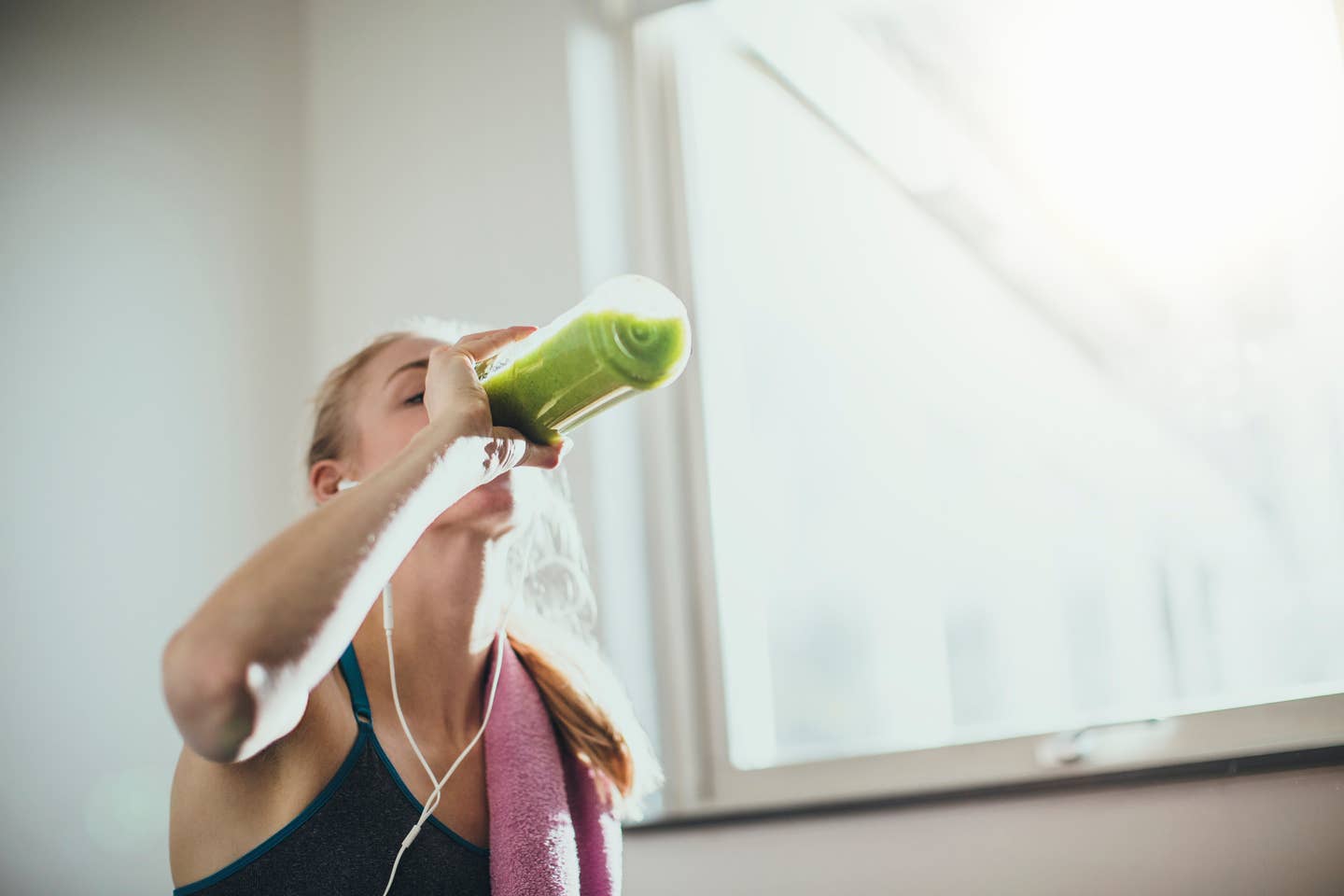
The Best Way to Feel Up After a Workout Is Plant Based Food & Drink, Experts Say
What should you eat to refuel after a tough workout? And do you actually need to eat after a sweat session? (That depends on whether your primary goal is to build lean muscle or incinerate calories and lose body fat.) Trainers like to push protein shakes and bars, but do you really need to eat right before or after you exercise? Here, nutrition pros explain when you should (and shouldn't) eat in relationship to exercise, and what the best options are to build strong, lean muscles. Spoiler alert: Choose plant-based protein for the win.
First: Should you eat after a workout or not?
By eating a post-workout snack, especially of plant-based protein, you can aid the muscles by speeding up recovery time. “The goal is to replenish nutrients used during the training session and deliver nutrients that serve as building blocks to heal the wear and tear exercise puts on the muscles,” says Cynthia Sass, M.P.H., R.D., C.S.S.D., plant-based sports and performance nutritionist. Yet whether you need a recovery snack right after a session depends on your main goal and how hard you're crushing it.
Start with the intensity and duration of your workout. The longer or more intense that workout was, the more important a recovery snack becomes. “If your workout lasts an hour or more, involves strength training, or is strenuous, intense sessions, [like HIIT}, eating a meal that checks certain boxes from a nutrition standpoint is ideal,” Sass says, whereas if you’re just going for a gentle or non-heart thumping walk, refueling probably isn’t necessary.
Your fitness goals matter. “If you are trying to build muscle, eating soon after an intense workout is important so that you don’t break down too much muscle,” and you rebuild that muscle fiber faster, says Natasha Arkley, personal trainer, and plant-based nutrition adviser in Reading, England. However, if you’re trying to burn fat and lose weight, you might want to put eating on hold to allow the afterburn to dig deeper into your energy stores. “Not eating directly after a workout allows your body to keep burning fat stores for longer, especially after something like a high-intensity interval workout," she explains.
One more variable? When your next major meal will be. If you’ll be eating breakfast, lunch, or dinner within an hour of finishing a long or strenuous workout, that can be considered your recovery calories. “You don’t need to eat right away and then eat again within an hour,” Sass says.
Post-workout recovery snack: Choose plant-based protein, carbs, and healthy fat
Fueling your body after a workout means replacing energy stores and helping muscles rebuild the micro-tears they sustain from any kind of resistance or strenuous cardio training. You know to look for a combination of protein, carbohydrates, and fat. But how much of each? Sass recommends 15 to 30 grams of protein, or more if your workout involves strength training and your goal is to build muscle. A plant-based source of the amino acid leucine helps trigger muscle protein synthesis, Sass explains. Leucine is found in pea protein, soy, pumpkin seeds, lentils, and navy beans.
Leucine is a branch-chain amino acid (BCAA), which is vital for building and repairing muscles, and some researchers say leucine may be the most important of all, according to WebMD. In a study done on competitive cyclists, taking leucine after a workout made them ride faster on their training ride the following day, and feel less overall fatigue.
Protein is important for recovery, but it's not the only nutrient your body needs. “Eating an adequate amount of carbs along with protein helps ensure that the protein is used for the maintenance and healing of protein tissues in the body, rather than being burned for fuel,” Sass says.
Mix that plant-based protein with healthy carbs, anti-inflammatory herbs and more
You should also include some antioxidant-rich, nutrient-dense vegetables, and whole-food carbs, which is something plant-based fitness enthusiasts often forgo. “Some plant-based athletes I’ve worked with focus only on protein and may drink just a plain protein powder mixed with water, which lacks carbs, veggies, and healthy fats,” Sass notes. There are plenty of sources of protein on a vegan diet.
The Best post-workout snacks for fast recovery and refueling:
- A smoothie made with pea protein powder, greens, banana, berries, oat milk, almond butter, and ginger
- A grain bowl made with lentils, greens and other veggies, quinoa and vegan pesto
- A stir fry made with tofu (soy or pumpkin seed-based), colorful veggies, brown rice, and nuts in a ginger sauce
- Trailmix of nuts and seeds like almonds, walnuts, pumpkin seeds, and dried fruit like raisins and apricots, full of antioxidants, healthy fats, and vitamins
Eat your recovery snack within an hour of working out, Arkley says. Just don’t look at a recovery meal as a reward for a tough workout, which will undo all that great work you just accomplished, Sass says. Instead, view it as a way to maximize the benefits of your workout so that you can keep improving and hit it again harder tomorrow.
More From The Beet






